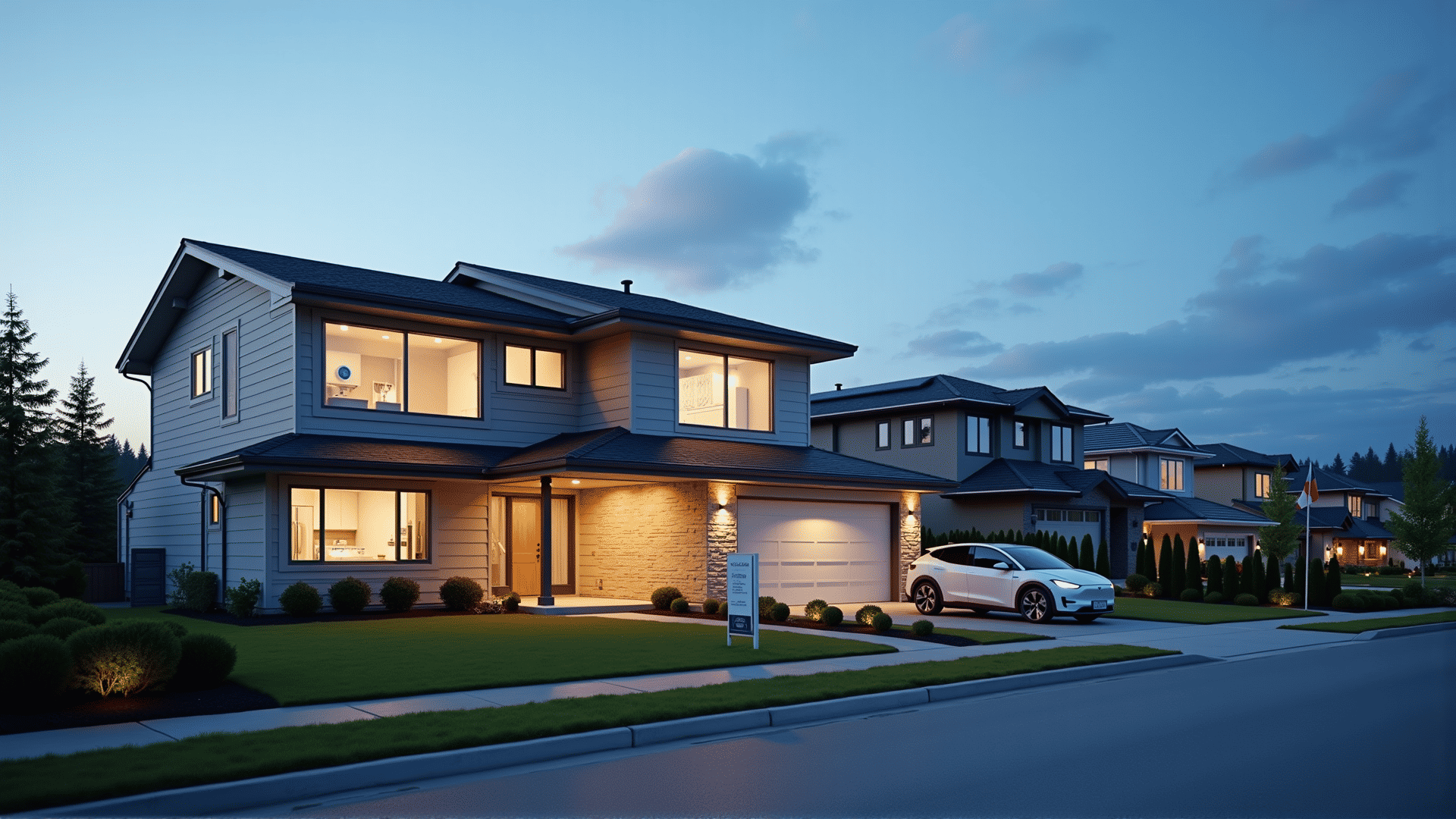The proliferation of smart home technology is transforming how Canadians live, enhancing comfort and convenience while forever changing the landscape of the real estate market. This new wave of intelligent living is making properties more appealing to buyers and renters and influencing purchasing decisions in unprecedented ways.
Smart home devices, ranging from intelligent thermostats and security systems to voice-controlled lighting and energy-efficient appliances, are becoming household staples across Canada. The appeal of these technologies lies in their ability to seamlessly integrate into daily life, allowing homeowners to control and customize their living environments with unparalleled ease.
The widespread adoption of smart home technology has presented a significant opportunity within the Canadian real estate market. Properties equipped with these features are increasingly in demand, with potential buyers and renters gravitating toward homes that offer both modern convenience and future-proofed capabilities. For real estate agents and property developers, this evolution offers an opportunity to differentiate listings by showcasing not just the home itself but also the sophisticated technology that supports it.
In urban centers such as Toronto and Vancouver, where the housing market remains competitive and fast-paced, smart home features can provide a crucial advantage. Prospective buyers, especially millennials and tech-savvy individuals, are often willing to invest more in homes that promise increased efficiency and ease of living. From automated climate control systems that optimize energy use to advanced security systems offering peace of mind, these technologies directly contribute to an enhanced quality of life, which, in turn, can lead to increased property values.
For renters, smart technology makes rental units more desirable. Features like keyless entry, integrated smart speakers, and app-controlled utilities can attract tenants seeking modern conveniences and a seamless living experience. Landlords who invest in smart technology not only make their properties more competitive but also potentially see lower vacancy rates and increased tenant satisfaction.
Beyond individual homes, entire smart communities are emerging. New developments are increasingly designed with an eye toward sustainability and technological integration, where everything from streetlights to water management systems is digitally optimized. These intelligent neighborhoods reflect a broader trend of urban evolution, emphasizing efficiency, community engagement, and security.
Government incentives and policies further drive the smart home movement in Canada. Promoting energy-efficient technologies aligns with national and provincial objectives for reducing carbon footprints and fostering sustainable living. Consequently, smart home innovations have become synonymous with environmental responsibility, further boosting their appeal among eco-conscious Canadians.
However, alongside these advancements come challenges that must be addressed. Privacy concerns and the security of interconnected devices are crucial considerations. As Canadian homes become smarter, ensuring personal data protection against cyber threats is paramount. This necessitates robust cybersecurity measures and public education on safe technology practices.
The rise of smart homes in Canada marks a significant shift in the real estate market, bridging the gap between traditional housing and cutting-edge technology. As more Canadians embrace intelligent living, the demand for smart home features will continue to grow, shaping the future of residential living. By embracing smart technologies, homeowners, and developers are not only enhancing their property's appeal but also pioneering a future where tech-enabled homes are the standard, setting the stage for a new era in Canadian living.
